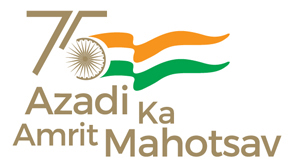November 2017
Himalayan Heritage: Community-led Economic Regeneration
Indian National Trust for Art and Cultural Heritage (INTACH) - Intangible Cultural Heritage Division
in collaboration with INTACH Uttarakhand Chapter and UNESCO Category 2 Centre on World Natural Heritage Management and Training for Asia and the Pacific Region, Wildlife Institute of India (29th - 30th November, 2017)
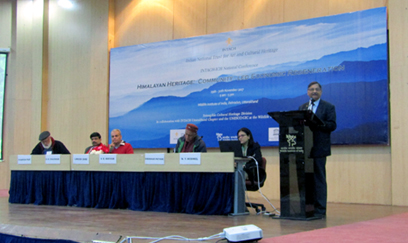
Due to the mainly agrarian nature of this region, its climatic conditions and tough topography, and lack of income opportunities locally, migration is on the rise, putting at risk many old traditions. Under gravest threat are the oral traditions of several communities, which incorporate invaluable local knowledge and creative output. This loss is also underpinned by the loss of languages, thus impacting the composite culture of this region.
The Intangible Cultural Heritage Division, INTACH in collaboration with the INTACH Uttarakhand Chapter and the UNESCO Category 2 Centre on World Natural Heritage Management and Training for Asia and the Pacific Region at Wildlife Institute of India is organising a National Conference on the intangible culture of the Himalayan region, with an aim to deliberate with community members, professionals, scholars, researchers and other cultural and natural heritage specialists on the idea of social and cultural identity, related oral traditions and to explore how this meets the challenge of an ever changing contextual environment.
Last Updated: November 29, 2017
WII-POWERGRID MOU for Avifaunal conservation under Corporate Social Responsibility
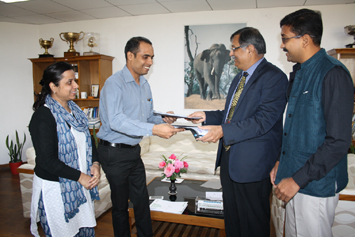 The Govt. of India has enacted Corporate Social Responsibility (CSR) Act in 2013 with the objective of engaging the companies in managing their business to produce an overall positive effect on society and environment. CSR is governed by clause 135 of the Companies Act, 2013 that encourages companies to spend at least 2% of their average net profit from the previous three years on CSR activities.
The Govt. of India has enacted Corporate Social Responsibility (CSR) Act in 2013 with the objective of engaging the companies in managing their business to produce an overall positive effect on society and environment. CSR is governed by clause 135 of the Companies Act, 2013 that encourages companies to spend at least 2% of their average net profit from the previous three years on CSR activities.
In order to meet the growing requirements of the power sector, the country is seeing a surge in the expansion of power transmission line network across the country, many of which are being aligned through areas harbouring avifaunal populations and growing network is becoming a threat to the survival of a range of rare and endangered birds. In order to mitigate this situation, the Wildlife Institute of India (WII) and Powergrid Corporation India Pvt. Ltd (PGCIL) have signed an MOU on 31st October, 2017 for initiating a project on “Assessing the Impacts of Power-Lines on Avian Species in the Arid Plains of Western Gujarat” under the CSR initiative of PGCIL. This is the first ever project taken up by WII seeking partnership with corporate sector under the CSR umbrella. The project will be completed in two years with a financial assistance of with corporate sector under the CSR umbrella. The project will be completed in two years with a financial assistance of Rs.90,00,000/- from PGCIL. The key objectives of the project are:
-
To assess the electrocution and collision risk to birds due to existing power-lines and wind farms, identify problematic configurations and generate comprehensive data on mortality of avifauna
-
To identify sensitive bird habitats along existing and proposed power-line and wind farm corridors in Western Gujarat.
Dr. R Suresh Kumar and Dr. Anju Baroth would coordinate this project.
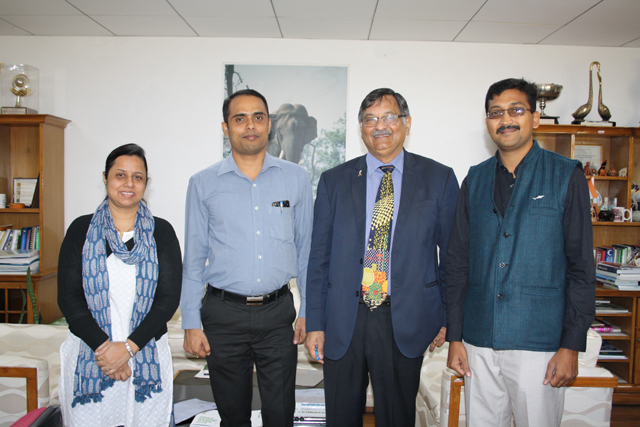 |
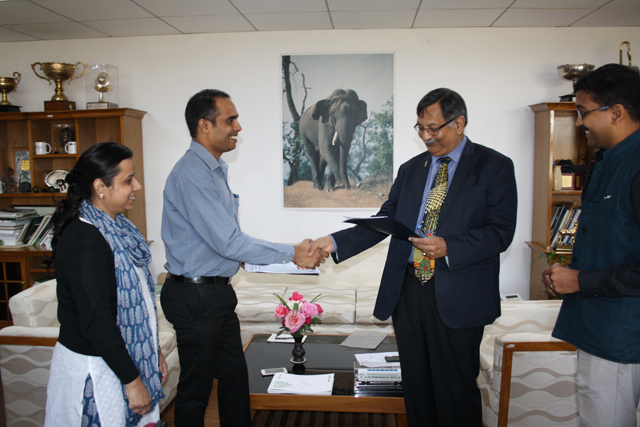 |
Last Updated: November 29, 2017

